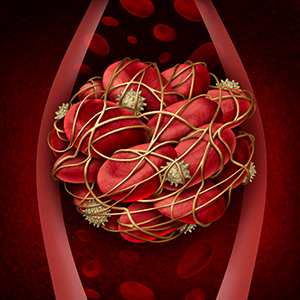The Watchman device for stroke prevention: Is it right for you?

The Watchman device was approved by the FDA in 2015 to help prevent strokes in patients who have a condition called atrial fibrillation (sometimes called AFib for short). When a patient has atrial fibrillation, the upper and lower chambers of the heart beat out of sync with each other. This irregular heartbeat is called an arrhythmia. Patients with AFib experience symptoms like a rapid heartbeat, dizziness and fatigue. AFib can lead to blood clots, which can travel to the brain and cause a stroke.
Often, doctors will prescribe anti-clotting medications like warfarin or apixaban (brand names Coumadin and Eliquis) to help AFib patients avoid a stroke. However, some patients do not tolerate these drugs well, and have a greater risk of internal bleeding as a result. The Watchman device was created to aid those patients.
How does Watchman work?
People with AFib often develop blood clots inside a small pouch that extends from the heart, called the left atrial appendage (LAA). Using a catheter, the Watchman device is inserted through a leg vein and up to the heart, where it is positioned at the opening of the LAA. The device closes the LAA so that clots cannot enter the bloodstream and travel to the brain.
Because the device is implanted just under the skin using a catheter, the procedure requires only a very small incision and takes about an hour.
Is Watchman right for me?
Many patients with AFib do well with anti-clotting medications; those who can tolerate these drugs without a high risk of bleeding are usually not considered candidates for Watchman. However, if you do have a problem with these medications, your doctor may recommend the Watchman device. Like any procedure performed under general anesthesia, implanting the device carries risks. But it offers a positive alternative for many AFib patients at a high risk for stroke.
If you’d like to know more about the Watchman device and procedure, call our Structural Heart Disease program at 989.583.4700. The Covenant program for Structural Heart Disease is the first and largest program in the region, offering hope for inoperable or moderate to high risk heart patients.
Posted Date: 8/10/2020